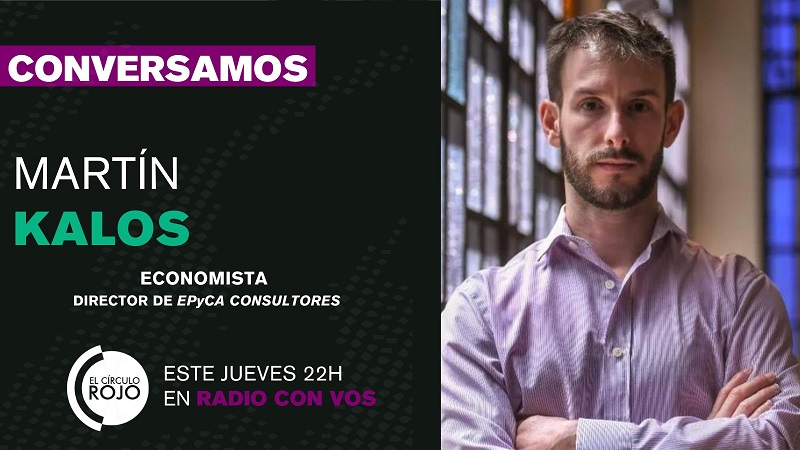
Círculo Rojo spoke with Martín Kalos. The economist, professor and director of EPyCA Consulting analyzed the economy under Milei’s government: dollar, recessionary tendencies, social situation, investment perspectives.
Regarding the government’s latest measures, Kalos explained that “the chance of it going well exists: what it is trying to do, in a way, is to align expectations and create a path that is very finite. You can fall to either side at any time, but that path exists. It is not that it is inventing something that we already know will go wrong, but it has a high chance of not working out.”
Kalos explained that it could go wrong “because what he is trying to do is to propose ‘to reduce the gap, through these interventions, it doesn’t matter that I don’t accumulate reserves because the whole objective is to reduce the gap, to convince then that I don’t have to devalue, to endure an exchange rate appreciation with that path of 2% nominal monthly devaluation of the official dollar and to get there, with an inflation that would then go down slowly, but could get closer to lower numbers, let’s say until next year'”. And, he added, “if it comes to that, then the reserves will grow betting that, showing a macro that has not become more disordered, Trump as the winner of a US election or someone comes to put up the money that they are not accumulating through foreign trade. That path, I understand, is the one they are thinking of. And I think that in everything I have just said, we see thirty million risks in each of these steps. That is the problem.”
Regarding the real economy, the economist pointed out that Epyca Consultoría had indicated that it was not understood how the government dared to say that a “V” recovery was coming. He explained that the economy “is working at two speeds: there are three sectors that are driving the rise. Two that were already growing: the mining and hydrocarbon sectors. And the one that is recovering this year, after droughts, is the agri-food sector. Everything else continues to fall.” He stated that “the internal market has not touched bottom.”
Based on a recent report in which Epyca participated, Kalos said that “up to May, 92 thousand registered private jobs were lost. That is, formal jobs in the private sector.” Of this total, the economist explained, “40 thousand are layoffs in SMEs.”
On whether inflation can continue to fall and become an important asset for the government, he analyzed that “if you tell me that by the end of the year we are below 2% monthly, it would be a victory for the government, but I don’t know if we will get there (…) Inflation is showing numbers below 5%, but they are not low numbers but rather high inflation numbers. What we have to remember is that two years ago, Argentina entered a high inflation regime (…) behaviors have already adapted to that high inflation (…) that generates an inertia and the government did nothing to break it. How does the government plan to break that inertia? By breaking everything.”
He added that the monetary and fiscal contraction means that “there are no pesos to buy dollars, like any other good in the economy (…), that you can’t afford to buy anything (…) there are the Chachos from La Rioja so that we remember what happened when we didn’t have pesos in 2001 (…)”.
The consequences, for the economist, are that “we are going to start seeing an increase in unemployment. How long will this last?” To which he responded that “it will depend on when the lie of the story begins to be revealed, it happens that the opposition is everywhere and no one confronts that story (…) in that game, Milei’s narrative is the only one that is proposing something to Argentine society that can give a part of that population some hope (…) while destroying the productive fabric.”
Regarding the prospects for mining and hydrocarbon investments, Kalos analyzed that “if one understands that Argentina has an external restriction, a limitation on what it can export and produce due to the conditions of the Argentine soil, this is not eliminated here. The only thing that is done is: another number is set as a limit. It is possible that this generates a stage of growth for Argentina by having dollars from these activities.” However, the economist warned that one must understand that “the investment announcements and the RIGI are desperate attempts to obtain the first dollars (…) They aim to increase exports (…) but that also has a ceiling (…) maybe they give you a few years of hope (…) we need to start thinking about a development path with added value.”
Watch the full interview here:
Source: www.laizquierdadiario.com

